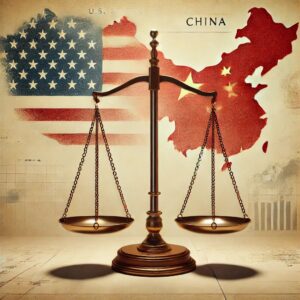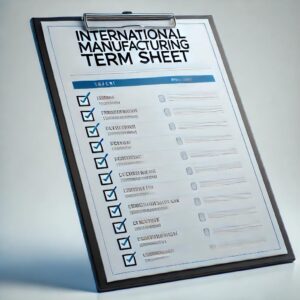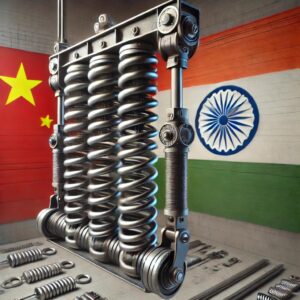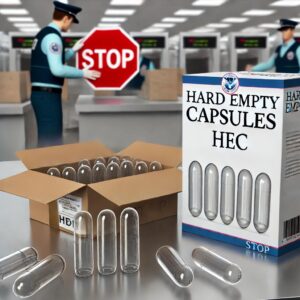United States Antidumping Cases
Companies importing products into the United States from China may be unfamiliar with terms such as “non-market economy (NME),” “respondent,” and “surrogate values.” However, this quickly changes when such companies’ imported goods are subject to a U.S. antidumping proceeding. U.S. antidumping or “AD” cases are complex. This is especially true for “non-market economy” or “NME” cases, including those that involve China.
Non-Market Economy Status and Its Impact
The United States deems China to be a non-market economy in which the Chinese Government is presumed to control all Chinese companies and their pricing decisions. Consequently, the United States does not generally use the Chinese companies’ prices in China to determine whether and to what the extent dumping has occurred.
Instead, the United States constructs the sales price of a good in China by valuing the good’s factors of production – such as raw materials, labor, energy, and capital costs – with surrogate values from another country at a comparable level of economic development. Historically, India was the default surrogate country for China. In January 2015, the U.S. Department of Commerce identified Bulgaria, Ecuador, Romania, South Africa, Thailand, and Ukraine as countries at the same level of economic development as China based on per capita 2013 gross national income data.
The Role of U.S. Importers in Antidumping Proceedings
Because U.S. antidumping cases move fast, U.S. importers are advised to have a good understanding of their roles during and after the various stages of AD proceedings.
First, assuming no affiliations between the Chinese exporter and U.S. importer, U.S. importers are not the responding or examined parties in U.S. AD cases against China. The U.S. Department of Commerce will select one or more companies for examination – the “respondents” – from the companies in China that exported the products to the United States during the investigation or review period.
Nonetheless, U.S. importers should strongly encourage their Chinese suppliers to take the important first step in an NME AD investigation of applying for a separate rate to demonstrate that the Chinese company is not controlled by the Chinese Government. Such applications must be submitted 30 days from the date on which the NME AD case initiation notice was published in the Federal Register. Submitting the NME “Separate Rate Application” is necessary to ensure the Chinese company does not receive the adverse antidumping margin assigned to the “PRC-Wide Entity.”
Financial Liabilities and Duties
Second, although U.S. importers are not the respondents in U.S. AD cases, they are the parties liable for paying AD duties on imported products subject to the AD cases. However, such duties will not be conclusively finalized until a subsequent administrative review period concludes. Following an investigation, an AD case’s first administrative review will likely conclude over two years from the date on which an investigation’s final order is published.
Following the AD investigation’s preliminary determination and until an order is issued for an investigation, U.S. importers may post bonds for estimated AD duties on the imported goods. After the order is published, importers must pay cash deposits for estimated AD duties.
Third, U.S. law generally prohibits a U.S. importer’s Chinese vendor from paying or reimbursing the importer for antidumping duties the importer must pay. The Department will deduct any such reimbursed duties from a respondent’s export price in the AD margin calculation such that the AD margin effectively doubles.
Market Implications and Strategic Response
Fourth, U.S. AD cases on Chinese products wreak havoc on global markets for the goods subject to the AD cases. Chinese companies and their U.S. importers will not know the final AD rates on the products for several years. Because U.S. importers do not definitively know their AD risk exposure in sourcing from particular Chinese companies, they cannot accurately budget for purchasing such companies’ goods. This uncertainty often encourages U.S. companies to source goods from other countries or U.S. producers that are not subject to the AD case.
Navigating Antidumping Challenges with Proactive Strategies
Antidumping cases, especially those involving non-market economies like China, present significant challenges and complexities for U.S. importers. The ever-evolving landscape of international trade demands not only awareness but proactive engagement in the antidumping process to mitigate risks and ensure compliance. Understanding the intricacies of surrogate values, the role of importers in proceedings, and the financial liabilities involved are crucial for maintaining a competitive edge and avoiding legal pitfalls.
As we’ve seen, the consequences of antidumping duties can ripple through the supply chain, affecting pricing strategies, sourcing decisions, and overall market dynamics. Therefore, U.S. importers must not only stay informed about the latest developments in trade regulations but also actively participate in the antidumping process. This includes encouraging Chinese suppliers to apply for separate rates, preparing for financial obligations, and planning for long-term sourcing strategies that consider potential changes in duty rates.
Moreover, the global marketplace is unforgiving of passivity. U.S. businesses must be agile, ready to adapt their strategies in response to new antidumping cases and shifts in trade policies. By fostering strong relationships with overseas suppliers and collaborating closely with legal and trade experts, companies can navigate these challenges more effectively.
In conclusion, while antidumping cases introduce uncertainty and complexity into importing activities, they also underscore the importance of strategic planning and active management. By understanding the rules, anticipating changes, and engaging proactively, U.S. importers can better protect their interests.

























